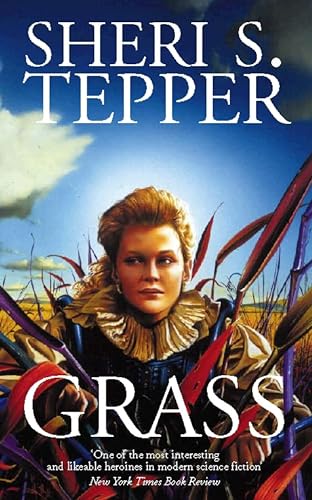

A moving, compulsive science fiction novel from one of the best writers in the field Shipping may be from multiple locations in the US or from the UK, depending on stock availability. But the men who arrive on Hobbs Land to find and return Maire to her homeland haven't taken Hobbs Land's God into account. Maire Manone came to Hobbs Land to escape the harsh patriarchal religion of Voorstod, but Voorstod hasn't forgotten her - or forgiven her. When that God died - disintegrating overnight - it seemed equally natural to start preparing its replacement. It seemed the natural thing for the settlers to maintain the last Owlbrit temple, with the strange statue that was its God.


Before the last one died, a few years later, the humans had learned a little of their language, their ideas and their religion. A moving, compulsive science fiction novel from one of the best writers in the field When the human settlers arrived on Hobbs Land, the native intelligent species, the Owlbrit, were already almost extinct. So has anyone read this book? What’d you think? Personally I loved it, maybe not as much as Grass, but I appreciated it’s uniqueness and vivid imagery.Book Description Paperback. One particularly interesting idea is how it would be to have a god that truly “works,” which is not seen favorably by those who follow a typical god. The book is essentially about three or four religious groups trying to coexist (or not coexist). Raising the Stones may be set in the distant future, but theres a strong sense of the primitive about it. Grass touched on ideas like religion with some feminist themes, Raising The Stones takes these and wraps the whole story around them. While it didn’t suck me in quite as quickly as Grass did, by the end I felt like I’d been on a long, beautiful journey. Raising The Stones is mostly set on the small agricultural planet of Hobbs Land where the recently extinct native species left behind their mysterious fungus-based “Gods” that are affecting the humans living there now. While it’s technically a sequel, it’s essentially a standalone story, set a long while after Grass with only minor connections. After recently reading (and loving) Tepper’s more well known novel Grass, I decided to jump straight into her follow-up which is the second book in her “Arbai” trilogy.


 0 kommentar(er)
0 kommentar(er)
